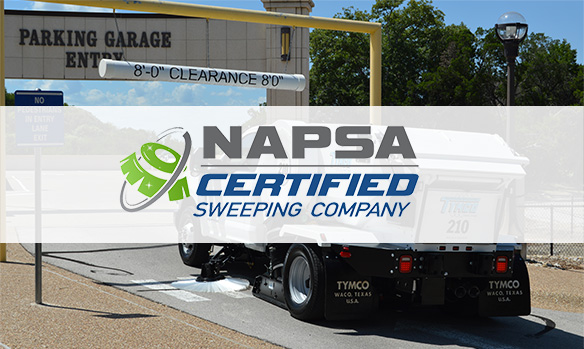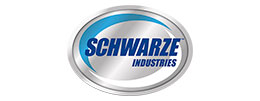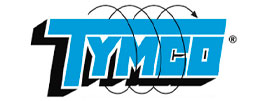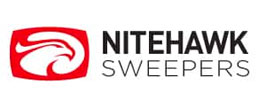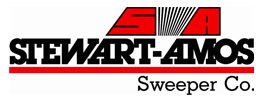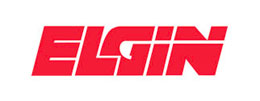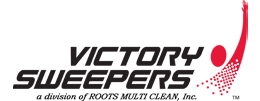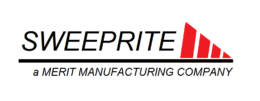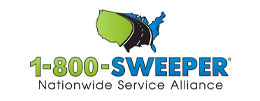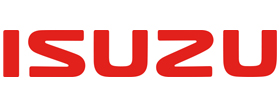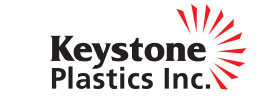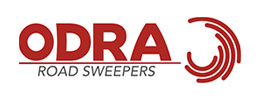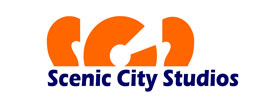Your company’s job is keeping streets, parking lots, parking garages, and construction sites clean, but what about your own space? From garage bays to offices, your business gets dirty and household products don’t do the job. You don’t use the same products to wash your vehicle as you to clean spilled motor oil. A plethora of industrial cleaning products is available, but how do you know what your company needs?
Types of Industrial Cleaners
Industrial cleaners come in three standard types: water-based, solvent based, and water-soluble solvent based. With water as their main ingredient, water-based cleaners come in liquid form. Most general cleaning products fall into this category and may be used on most surfaces, although they generally dont have the deep-cleaning, stain removing power of solvent-based cleaners. Solvent-based cleaners may be liquid or solid, as their main ingredient is a chemical, not H2O. Solvent-based cleaners are generally formulated for use on specific materials, such as cleaning steel, chrome, glass, or other material. The hybrid, water-soluble solvent-based cleaners may offer the best of both worlds.
Regardless of the type of cleaner, pay attention to the ph scale or acidity of the cleaner. High-acidity cleaners, which range from zero to seven on the ph scale, work best to remove mineral stains. Mineral stains include hard water scale, soap scum, and rust. Alkaline cleaners, which range from 7 to 14 on the ph scale, work best at removing grease, oil, and wax.
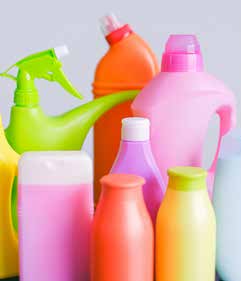
Appropriate Applications
Soaps and detergents both clean: the difference lies in their composition. In simple terms, soaps are made from natural ingredients, such as plant oils (coconut, vegetable, palm, pine) or acids derived from animal fat. Detergents, on the other hand, are synthetic, man-made derivatives. 1 soap has limited applications, but detergents can be formulated to tackle an infinite variety of cleaning needs both general and specific. Detergents have largely replaced soap in modern use. Soap, however, tends to be kinder to skin.
Alkaline detergents are highperformance cleaning agents that penetrate surface film and mechanically deposits from the underlying material. This surface action ends when the base material is clean, thus reducing the risk of pitting that material. Use alkaline detergents for cleaning greasy mechanical components, garage floors, etc.
Electronics require a much gentler touch when cleaning. Look for solvent-based cleaners consisting of highly refined solvents and which dont contain any ozone depleting solvents. Solvent cleaners are generally wiped, sprayed, or brushed onto the surface of the object to be cleaned with any residue to be wiped away with a lint-free clean cloth.
General purpose cleaners dont carry the same heavy-duty wallop against grime that industrial strength cleaners do, but they are suitable for most cleaning applications with the added benefit of not being flammable. General purpose cleaners are suitable for using in a wide array of applications, including oil field, marine and off-shore, aviation, food processing and municipal applications.
Corrosion is a concern when using any cleaning product. One doesnt want water or chemicals damaging the surface being cleaned. Flammability is also a concern with some detergents. Therefore, its best to select those cleaners specifically formulated for the task when it comes to cleaning closed loop systems or cleaning around fire hazards such as boilers and heat exchangers.

Environmental Impact
The production of soap entails use of natural resources such as vegetable oil, which have a cumulative effect on the environment if only through farming and harvesting methods. It also requires rinsing, which consumes additional water. Detergents usually consume fewer natural resources, but arent necessarily biodegradable. The chemical compounds may remain present in water even after sewage treatment. Manufacturers of detergents are aware of sulfate pollution and many have revised their formulae to ensure their chemicals biodegrade quickly in sewage treatment plants.
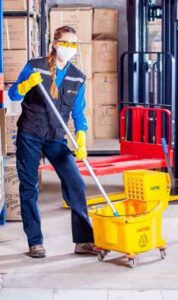
Your Choice of Cleaning Product
The four main factors of any cleaning agent are time, action, chemical concentration, and temperature. Some cleaning products need to be left on the surfaceor the object to be cleaned immersed within a container full of the productfor minutes or even hours to do their job well. Other cleaners need to soak the surface to loosen dirt and grime and some work better by flowing over the surface. Chemical concentration might be the trickiest to gauge: you want chemicals strong enough to do the job, but not so strong they corrode the materials theyre supposed to clean. Finally, some chemicals work best at hot or cold temperatures. (remember cold temperature cheer laundry detergent? ) evaluate how the product will be used and determine whether using it will be a hassle.
The cleaning products you select should fit what needs to be cleaned. For specialized industrial cleaners, check with your sales representative for detailed information regarding proper application.
